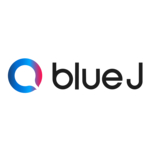TD Bank Group president and CEO Bharat Masrani to retire next year
TD Bank president and CEO Bharat Masrani has triggered a leadership succession after announcing his intention to retire after more than 10 years leading the Toronto-headquartered banking group.

TD Bank’s Masrani to retire next year (Image: LinkedIn)
Masrani first joined the bank back in 1987, ascending through a variety of roles including COO, vice chair and chief risk officer before being named CEO in 2014.
However, the 68-year-old is now preparing to step down from his leadership role and will officially enter retirement on 10 April 2025.
He will continue to serve as an advisor to the bank until 31 October 2025.
With Masrani departing, the board has named Raymond Chun, current group head of Canadian personal banking, as his successor.
Chun, who has held a number of senior roles over his 32-year tenure at the bank, will initially take up the role of COO on 1 November 2024, reporting directly to Masrani, before taking the reins as the group’s new president and CEO from next April upon Masrani’s retirement.
As COO, the bank says Chun will take charge of “all of TD’s lines of business”.
The announcement comes just a month after TD Bank provided an update that it “continues to actively pursue a global resolution of the civil and criminal investigations into its US Bank Secrecy Act (BSA) / anti-money laundering (AML) program by its US prudential regulators, the Financial Crimes Enforcement Network (FinCEN) and the US Department of Justice (DOJ)”.
The bank says that in anticipation of a resolution, which it expects will be finalised “by calendar year end”, it has set aside $2.6 billion in its third quarter financial results “to reflect the bank’s current estimate of the total fines related to these matters”.
Speaking on his retirement, Masrani says: “We have a strong bench of senior leaders and will execute a smooth and seamless CEO transition.
“The anti-money laundering challenges we face took place on my watch as CEO and I take full responsibility. In the coming months, I will continue to advance and direct the critical remediation program required to meet our obligations and responsibilities and strengthen our risk and control foundation.”











































